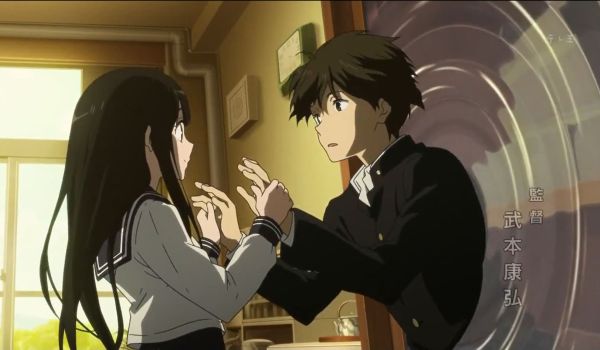
Definitely on the fantastical side of things, and I’m not even talking about the body and dress of their teacher, just the excessive use of colorful magic.
It is little more than a week left before NaNoWriMo, the (inter)National Novel Writing Month. I can’t remember being so meh about it, so uninterested, since I first heard of it. I am not even taking November off from work this year, as I have done for the last decade or so. Admittedly this is because of some small sense of loyalty to my job, where I am not really useful in July, so this year I took it off. Well, only people with a lot of privilege get to choose to take November off from work anyway, so that is not exactly the big deal. The big deal is that I almost forgot the whole thing, until I read the manga called Tales of demons and gods.
Tales of demons and gods is a Chinese manhua (same as Japanese manga, basically oriental comics). This story is heavily inspired by the Chinese Wuxia literature, which has been going on for some centuries but has blossomed and spread in recent years. Westerners may have seen the movie Crouching Tiger, Hidden Dragon, but there is much more where it comes from, and some of it is more fantastical and mythical. Some has called it the Oriental version of the Sword & Sorcery fantasy genre, but it has actually been around for centuries so it is more like the other way around.
Tales of demons and gods is on the more fantastical end of the spectrum, with more magic-like effects and less focus on weapon use, although this happens too. The main character is ridiculously overpowered, but there is a reason for this, and it is not the usual “child of prophecy” or “unknown heir to the throne” or anything like that. Rather, the main character Nie Li was actually killed at the height of a long and distinguished career as a hero and adventurer, traveling the entire continent, learning everything he could and honing his skill. Even this was not enough against the overwhelming odds he met on his last day. But rather than moving on, his spirit went back in time to when he was 13 years old, taking with it all his knowledge from his long life.
This is not an entirely unique plot device, but it is pretty rare. When I came up with it for the first time, I was unaware that anyone else had thought of it. I have actually written a lot of stories based on this concept, but none of them were usable. It is still a very interesting notion, but one that invites to wish fulfillment fantasies. That also kind of happens here, but the creativity of the author (whose name is usually translated as Mad Snail) helps carry the story despite the extreme advantages given to the main character.
It helps that Nie Li has a pretty poor starting point: His soul strength is very low, barely noticeable: 5 points when the lowest rank starts at 100. However, because of his knowledge from a long life, he know how to train to expand this and become the strongest hero. He quickly picks a fight with one of the three ruling families of the city and continues dissing and humiliating their members, causing more and more severe reactions until they actively try to get him killed. So that keeps the reader on his toes. There is also a love triangle, with tendencies toward love pyramid as the story progresses.
Well, I don’t really imagine this will interest any of my readers directly. But since it is likely to have a noticeable influence on my NaNoWriMo project this year, I thought I would give credit.



